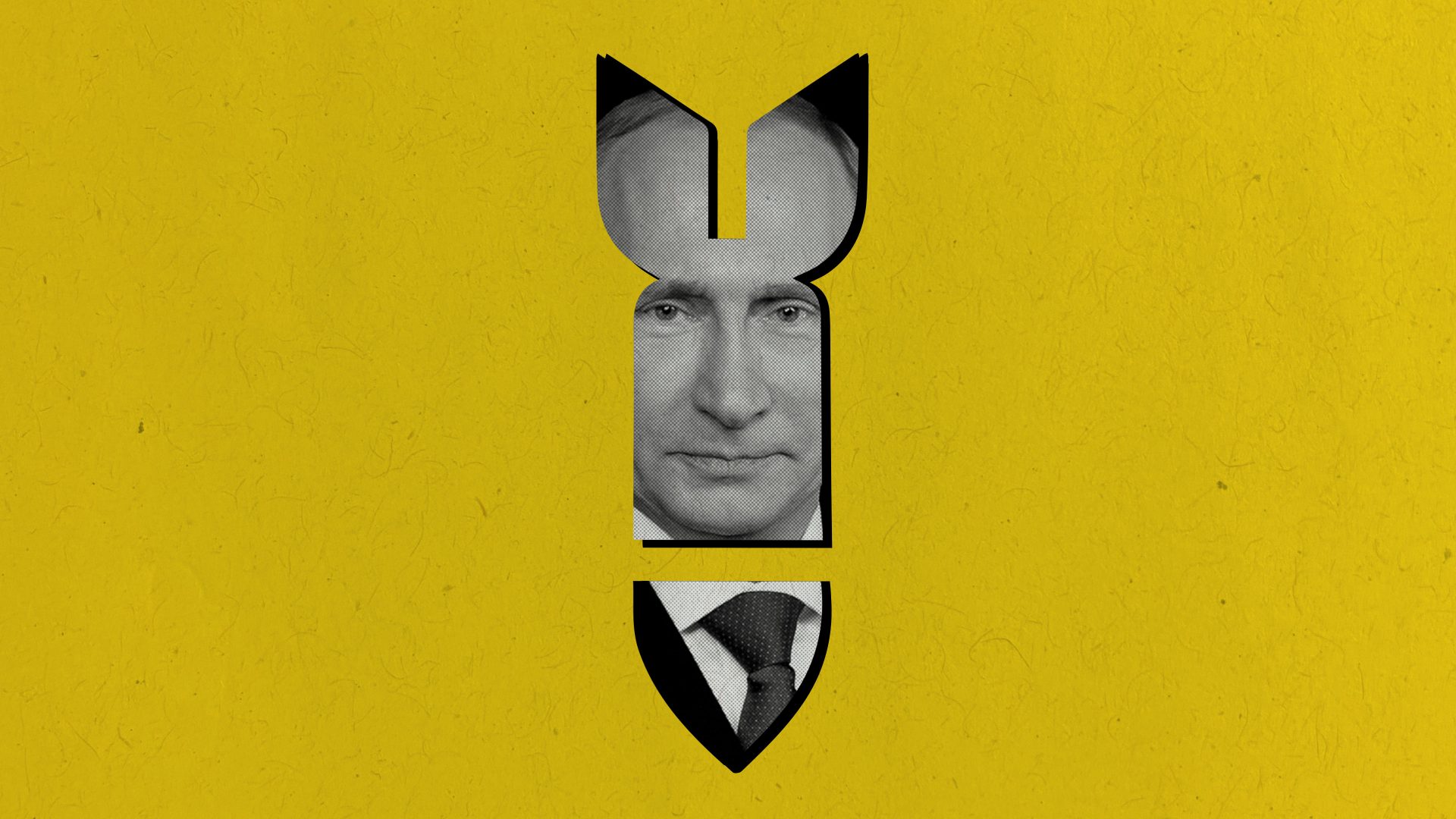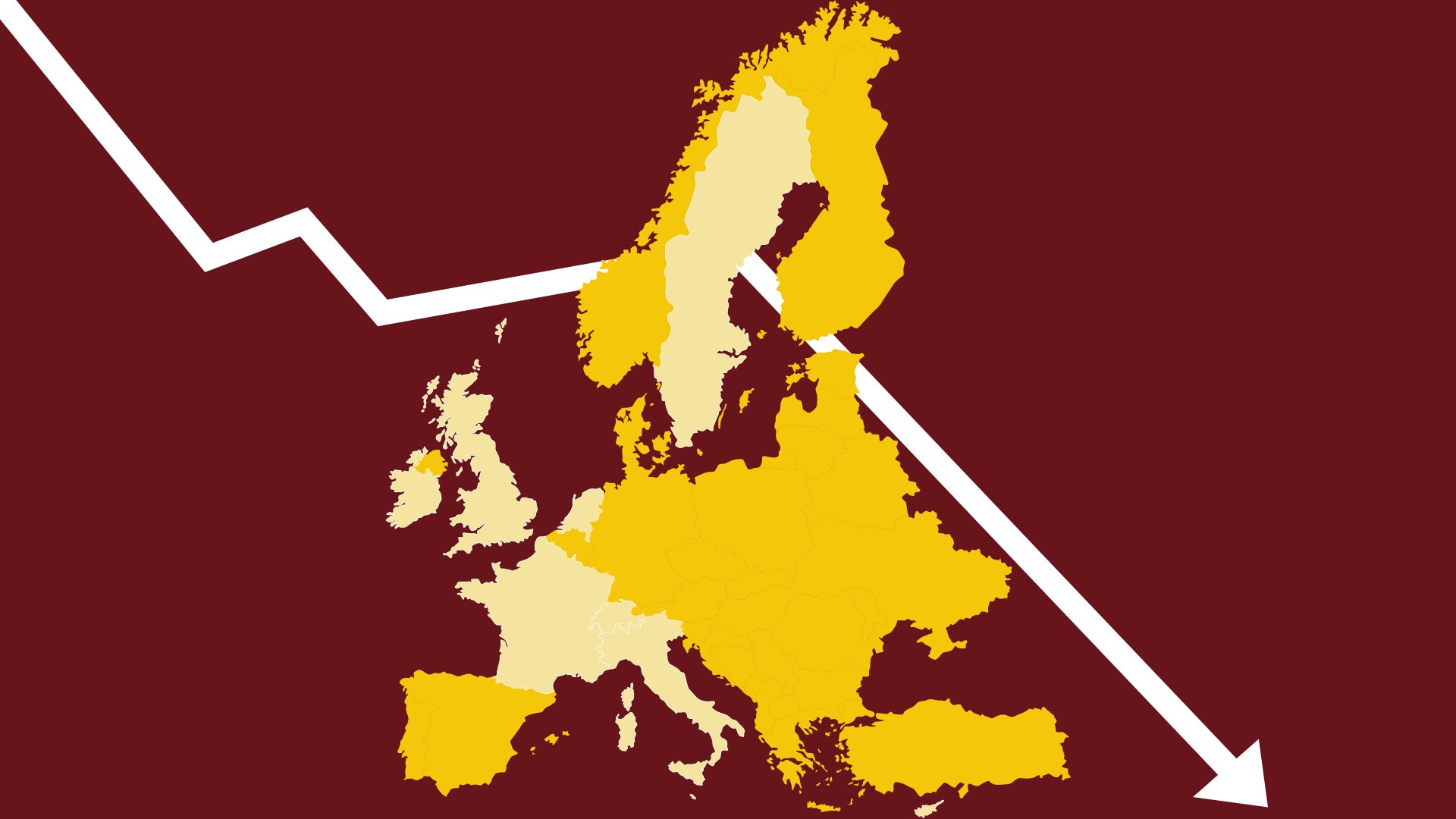Vladimir Putin’s dream of a second Russian empire is collapsing. Drunken Russian conscripts are fleeing to Ukraine to avoid the draft; Iran’s cities are in flames from the hijab uprising; Russia’s protectorate in Armenia lies helpless against Azerbaijan’s aggression. Meanwhile, he is forced to suffer stern public lectures from Xi Jinping.
But it’s a dangerous moment. Last week, Putin announced the call-up of 300,000 reservists, launched sham referendums in four provinces in Ukraine, and threatened the West that if Ukraine goes on fighting for its territory in these areas, he could use nuclear weapons. “I am not bluffing,” he said, looking like a dead-eyed zombie.
This is a serious threat, and requires everyone to ask: what if he goes ahead? Since 1945 the human species has lived in the shadow of self-annihilation through nuclear war. But the threat of mutually assured destruction meant, even when conventional conflict flared, nuclear conflict looked merely theoretical. The rise of a totalitarian ethnonationalist regime in Moscow has changed that. I believe Putin’s threat of a pre-emptive nuclear strike on Ukraine is real. That is not because we are dealing with a crazed, irrational individual. It is because, in pursuit of an irrational end – the destruction of Ukraine as a political entity – Putin may be willing to follow the strict logic of Russian statecraft.
Every Russian war game simulating conflict with the West ends with a phase known (in the West) as “escalate to de-escalate”. Having made their territorial gains, Russian forces use a nuclear weapon and invite the adversary to the negotiating table. They have rehearsed this in every military exercise of the Putin era and written it into their doctrine.
It is not, as some assume, a doctrine of pre-emptive strike, but in Putin’s own words (in calmer times): “We are prepared to, and will use, nuclear weapons only when we are convinced that someone, a potential aggressor, is attacking Russia, our territory.”
By designating Kherson, Zaporizhzhia, Donetsk and Luhansk provinces as “Russia”, Putin is awarding himself permission to initiate a “retaliatory-offensive strike” (otvetno-vstrechny udar).
The most likely scenario for this would be if – once the referendums are “won” and the four provinces officially absorbed into the Russian Federation – Ukraine continues, or substantially accelerates, its counter-offensive there.
Experts believe Putin’s options range from a nuclear attack on a Ukrainian city or a low-yield “symbolic” explosion over the Black Sea through to small nuclear artillery shells or even simply an illegal atmospheric nuclear test on Russian soil.
Western governments should be united in their attempt to deter this action. Since the West has no means to stop Putin using nuclear weapons in the above ways, it has only the threat of punishment. But that has to be real, and communicated convincingly. That’s what US national security advisor Jake Sullivan was doing when he revealed that Joe Biden had communicated privately to Putin there would be “catastrophic consequences” if Russia used nukes in Ukraine.
Some analysts believe that nothing we do can stop Putin. Having been defeated in his attempt to take Kyiv and Kharkiv and seen his soldiers legging it, it would be political suicide for him to do anything other than escalate.
I am in the camp that believes “deterrence through punishment” will work – because Putin does not take such decisions alone. If western governments and populations show they are not prepared to tolerate nuclear aggression, the same rational calculus that drove him to make the threat will drive him to withdraw the threat.
So what can we realistically do? In the first place, we need to understand that there are no “tactical” nuclear weapons. Any move to break a nuclear peace that has lasted 73 years would be strategic and permanent. It would signal to the entire global south that their national security is at risk from pre-emptive action by nuclear-armed neighbours. It would trigger a wave of proliferation.
The West has a range of nuclear weapons finely calibrated to match this threat in advance: “tunable” nuclear bombs deliverable by nuclear-capable aircraft, which would enable Nato to retaliate without triggering a full-scale inter-continental nuclear exchange. But I am against using them.
The guy is a nihilist and a narcissist. He has already declared “What is the point of the world if Russia is not in it?” – meaning the racist, totalitarian Russia he has designed. Western nuclear retaliation risks pushing Putin down the path of national suicide.
But I cannot believe that anything short of the threat of military action – specified privately in the first place – will act as a sufficient deterrent. Even severe diplomatic sanctions would signal a western climbdown.
So, if Putin ushers in a new nuclear era here’s what we in the democratic world need to commit to in response:
An immediate conventional counter strike that destroys Russia’s Black Sea Fleet and systematically eradicates every Russian military unit on Ukrainian soil and airspace. I understand this is one of the options being considered, and has been communicated through the Biden/ Putin back channel.
The West would in effect enter the war on Ukraine’s side, assuring Russians that the aim was simply to restore Ukraine’s 2014 borders as a sovereign state. At the same time, sanctions would be applied to any country still collaborating with Russia, meaning primarily China.
This is a horrible prospect. I’m certain readers will be alarmed. I am writing about it now because it’s better to be alarmed now than to be running around waving your hands in despair on the morning after it happens. Because that is Putin’s aim: to force us into panic and inaction.
The best way of dissuading Putin from dropping a nuclear bomb is to make the consequences devastating and clear to Russia’s population and security elite. The only way that deterrent message is going to stick is if Putin believes the western electorates will back it.




